
Categories
Resource Types
CCSS
Speaking & Listening
Language
Reading
Developing Child with Unilateral hearing Loss - Early Interventionists
$ 19
This step‐by‐step guide has been developed to share with families after unilateral hearing loss has been diagnosed, typically in infancy secondary to identification through newborn hearing screening.
...
ng. The guide reviews background information regarding what is known about the effects of hearing loss in one ear on child development. It is divided into suggested sections to correspond with pediatric audiology appointments and with home visits by an early interventionist (teacher of the deaf/hard of hearing or speech language pathologist). Three is a focus on language and social development and a trial with amplification.
What we Know about Why Children Reject Amplification Devices
$ 1
This information reviews research findings that provide insight on which students are more likely to refuse to wear their hearing amplification and reasons why.
Age 0-3 - Early Attachment - Building Self-Confidence & Resilience
$ 250
For ages 0-3 years: This information addresses bonding and identification, initiation and early intervention, autonomy and supporting independence in putting on hearing devices. Includes teaching mate
...
rials for use by/with families. The purpose of this book is to raise awareness for the reasons why hearing device rejection happens and specific instruction to occur at different ages to build student resilience and self-confidence, thereby increasing the likelihood that they will not reject using their hearing technology. Specific teaching activities and recommendations for instructional materials to develop identified skills have been included in this Guide.
Age 4-6 - Metacognitive Awareness - Building Self-Confidence & Resilience
$ 6
For ages 4-6 years: This information addresses students recognizing that they have a hearing loss, understanding feelings, learning expected class listening behaviors, remembering what was heard via s
...
ubvocalization skills, responding to teasing, making friends. The purpose of this book is to raise awareness for the reasons why hearing device rejection happens and specific instruction to occur at different ages to build student resilience and self-confidence, thereby increasing the likelihood that they will not reject using their hearing technology. Specific teaching activities and recommendations for instructional materials to develop identified skills have been included in this Guide.
Age 7-11 - Responding to Challenges - Building Self-Confidence & Resilience
$ 250
For ages 7-11 years: This information addresses the components of resilience, building perseverance, goal setting, learning chunking skills, problem-solving, using humor, and reconciling feelings of f
...
itting in. The purpose of this book is to raise awareness for the reasons why hearing device rejection happens and specific instruction to occur at different ages to build student resilience and self-confidence, thereby increasing the likelihood that they will not reject using their hearing technology. Specific teaching activities and recommendations for instructional materials to develop identified skills have been included in this Guide.
Age 12-19 - Reconciling Feelings of Fitting In - Building Self-Confidence & Resilience
$ 250
For ages 12-19 years: This information addresses feelings of fitting in, problem-solving, social isolation, identity, importance of role models, positive outlook, and dealing with challenges due to he
...
aring loss. The purpose of this book is to raise awareness for the reasons why hearing device rejection happens and specific instruction to occur at different ages to build student resilience and self-confidence, thereby increasing the likelihood that they will not reject using their hearing technology. Specific teaching activities and recommendations for instructional materials to develop identified skills have been included in this Guide.
Key Points for Administrators and School Staff
$ 095
This resource discusses key point for administrators and school staff regarding the educational needs of students with hearing loss in regard to the realities of hearing device use and what educators
...
can do, including extra knowledge and skills, daily classroom needs, and social interaction issues. Separate handouts for teachers of students in early elementary and those in upper elementary and secondary grades. The information also includes evidence-based decision-making for access accommodations for students with hearing loss which focuses on the requirements of Title II of the ADA and the school's responsibility to identify appropriate communication access accommodations for every situation encountered in school. Worksheet to be used for team discussion of access needs is included.
Building Self-Confidence & Resilience to Maximize Acceptance of Hearing Devices (book)
$ 14
A significant proportion of students with hearing loss refuse to use hearing technology necessary for their educational access, often because they feel as though they do not fit in to their peer group
...
. The purpose of this book is to raise awareness for the reasons why hearing device rejection happens and specific instruction to occur at different ages to build student resilience and self-‐confidence, thereby increasing the likelihood that they will not reject using their hearing technology. Specific teaching activities and recommendations for instructional materials to develop identified skills have been included in this Guide.
Impact of Hearing Loss on Listening, Learning and Social Interactions handouts
$ 595
The Impact of Hearing Loss on Listening, Learning, and Social Interactions handouts are to be used to inservice school staff, increase understanding of families, and as a tool for student learning reg
...
arding the impact of hearing loss on speech perception and school needs. The handouts are appropriate to children and youth with primarily flat configuration hearing loss ranging from 26dB - 75dB. Different ranges of hearing are addressed in the 4 handouts to reflect unaided hearing ability or aided hearing thresholds. Estimates of specific speech sounds and audibility for quiet, conversational, and teacher speech are provided. Includes inservice resources with visual analogies for background noise, reverberation, and comprehension challenges.
CAVE Checklist - Communication Access in Virtual Education (French)
$ 0
The CAVE Checklist in French is a self-report checklist is intended to be completed students age 9 and above who are deaf or hard of hearing to identify possible communication access issues that may o
...
ccur during virtual education situations. It is recommended that the CAVE be completed in an interview format with the DHH specialist discussing each situation with the student. Students read 10 questions related to accessing communication in online learning situations and rate them from Always Easy to Always Difficult, or Doesn't Happen. A total score can be obtained. Not every situation will apply to every student. Situations indicating appropriate access will receive scores of 4 or 5. Items scoring 1, 2, 3, need to be addressed for appropriate access needs. The 10 questions are followed by a list in which the student identifies what he or she thinks helps most during online learning.

 Your browser is out of date. For best experience switch to latest updated Browser.
Your browser is out of date. For best experience switch to latest updated Browser.
 Get Chrome
Get Chrome Get Edge
Get Edge Get Firefox
Get Firefox
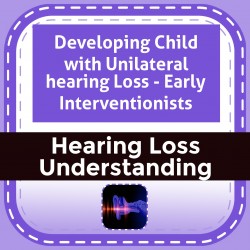
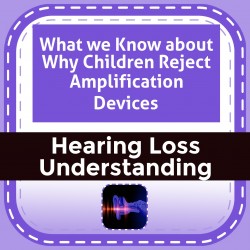
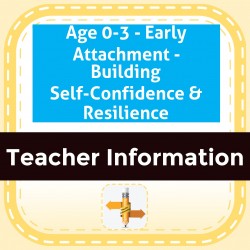
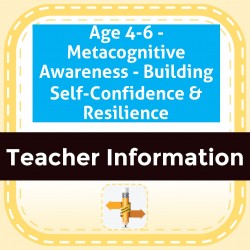
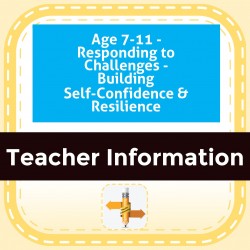
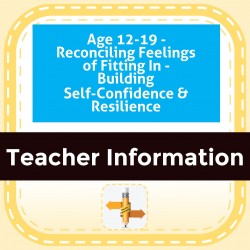
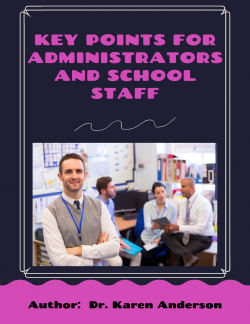
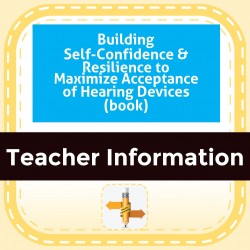
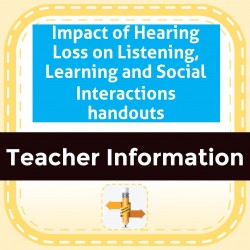
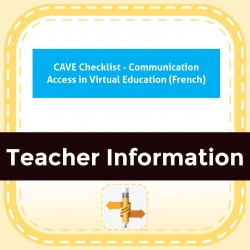


 You MUST include an email contact and phone number on your PO. Some of our products are downloadable only and delivered via email. Not including an email address will prevent delivery.
You MUST include an email contact and phone number on your PO. Some of our products are downloadable only and delivered via email. Not including an email address will prevent delivery.